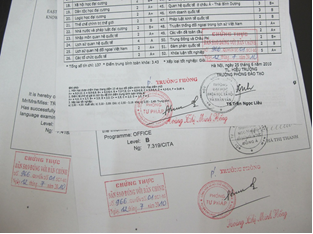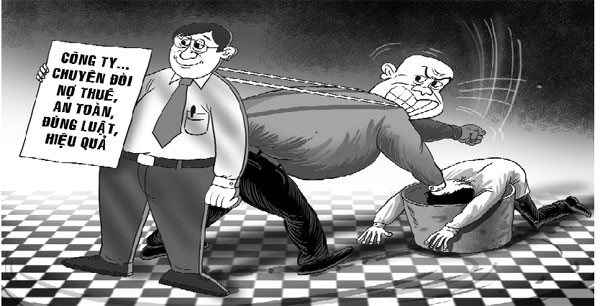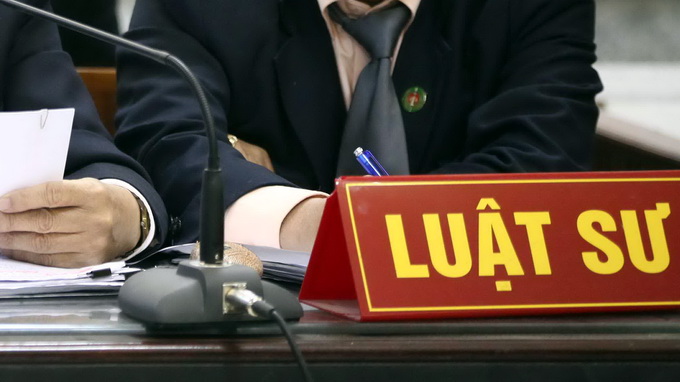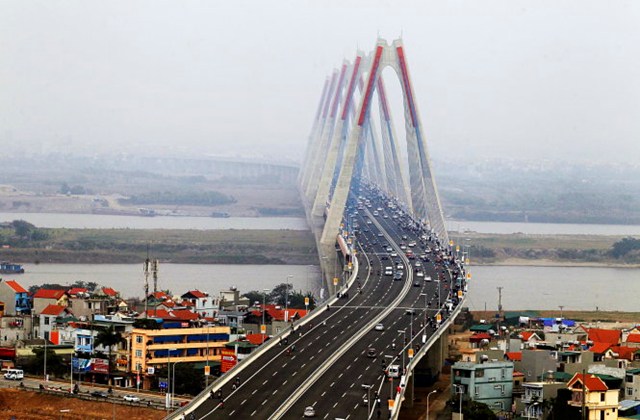The Law on Denunciations 2018 was passed by the National Assembly of the Socialist Republic of Vietnam, term XIV, during the 5th session on June 12, 2018, and took effect from January 1, 2019. Below are the new points of the Law on Denunciations 2018 compared to the Law on Denunciations 2011.
1. Regarding the Scope of Regulation
Law on Denunciation 2018 generally provides regulations on denouncing and resolving denunciations for legal violations in the performance of duties, omitting the phrase “officials and public employees” from the Law on Denunciation 2011. Such regulations are comprehensive, not only addressing the denunciation of officials and public employees' conduct, but also extending to other individuals assigned to perform duties.
2. Responsibility of Coordination Among Agencies and Organizations in Resolving Denunciations
The Law on Denunciation 2011 stipulates that agencies, organizations, and individuals managing and retaining information and documents related to denunciations are responsible for fully and promptly providing information and documents as requested by the authorized person within 07 days from the date of the request.
The Law on Denunciation 2018 does not specify a 07-day period for providing information, only generally requiring the provision of information and documents related to the denunciation content in accordance with the law.
3. Prohibited Acts
The Law on Denunciation 2018 adds the following prohibited acts:
- Discrimination in resolving denunciations;- Losing files and documents during the denunciation resolution process;
Simultaneously, it removes the prohibition on violating other legal regulations on denunciations and the resolution of denunciations.
4. Rights of the Person Filing the Denunciation
The Law on Denunciation 2018 adds provisions allowing the person filing the denunciation the right to withdraw the denunciation and to be compensated for damages as stipulated.
5. Obligations of the Person Filing the Denunciation
The Law on Denunciation 2018 stipulates that the person filing the denunciation has an obligation to cooperate with the person resolving the denunciation when required.
6. Rights and Obligations of the Accused
The Law on Denunciation 2018 provides that the accused has the right to receive decisions regarding the extension, suspension, temporary suspension, and continuation of the resolution of the denunciation; the right to explain; and the right to ensure legal rights and interests before any conclusions are made. The accused also has the right to appeal decisions made by competent agencies, organizations, or individuals as defined by law.
The Law on Denunciation 2018 also adds that the accused has the obligation to be present when requested by the person resolving the denunciation.
7. Principles for Determining Jurisdiction in Resolving Denunciations
The Law on Denunciation 2018 adds principles for determining jurisdiction in cases where:
- The denunciation involves legal violations by officials and public employees during previous tenures.- Denunciations involving officials and public employees of merged, split, or dissolved agencies or organizations are handled by the head of the receiving agency or the managing agency before dissolution.
The principle from the Law on Denunciation 2011 that required judicial bodies to handle denunciations involving criminal signs has been omitted.
8. Jurisdiction to Resolve Denunciations
- The Law on Denunciation 2018 includes provisions stipulating that the chairpersons of district-level People's Committees, heads of provincial-level specialized agencies, and chairpersons of provincial-level People's Committees have the authority to resolve legal violations within their direct management.
- The law specifies more detailed authorities for the heads of People's Courts and the heads of People's Procuratorates at all levels.
9. Initial Handling of Denunciation Information
The new law shortens the initial handling time from 10 days to 7 days, from the receipt of a denunciation. Agencies, organizations, and individuals must record, categorize, initially handle, verify information about the person filing the denunciation, and determine acceptance conditions. For complex cases, the time may be extended to 10 days.
10. Handling Anonymous Denunciations
- When disclosures are received without clear names, addresses, or the person filing the denunciation cannot be identified, authorities are not obligated to process the information as per this law.
- If the information is clear about the violating party and includes solid evidence, the receiving agency must conduct verification or forward it to an authority for inspection.
11. Denunciation Resolution Process
The Law on Denunciation 2011 outlined 5 steps: receiving and processing denunciation information, verifying denunciation content, concluding the denunciation content, handling the denunciation, and publicizing conclusions and violation handling decisions.
The Law on Denunciation 2018 modifies the process by replacing 'receiving and processing denunciation information' with 'acceptance of denunciation' and omits the publicizing step.
12. Acceptance of Denunciation
The Law on Denunciation 2018 does not specify an acceptance period as the 2011 law did. It stipulates acceptance when conditions are met, and requires notification within 05 working days from the acceptance decision.
13. Duration for Resolving Denunciations
The Law on Denunciation 2011 stipulated a 60-day resolution period from the acceptance date, while the 2018 law reduces this to 30 days. For complex cases, extensions of 30 days each are allowed, capping the resolution period.
14. Withdrawal of Denunciation
This new regulation in the Law on Denunciation 2018 allows:
- Complete or partial withdrawal before conclusions are made, to be in writing.- Partially withdrawn denunciations continue to be resolved. Fully withdrawn denunciations follow specific legal provisions.- Denunciations involving multiple filers proceed unless all withdraw. Withdrawn filers forego their rights and obligations unless specified otherwise.
15. Temporary and Permanent Suspension of Denunciation Resolution
New to the Law on Denunciation 2018:
- Suspension decisions are issued for awaiting results from other processes or additional verification.- Suspended cases resume immediately once conditions are resolved.- Permanent suspension decisions are made for full retractions, death of the individual concerned, or resolved cases by court or competent authority decisions.
Temporary or permanent suspension decisions must explain reasons, responsibilities, and be communicated within 05 working days from issuance.
Source: Legal Information Page
 Article table of contents
Article table of contents





.Medium.png)
.Medium.png)
.Medium.png)
.Medium.png)
